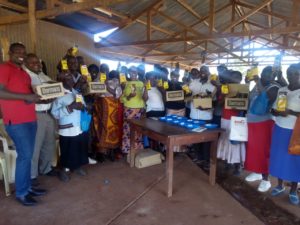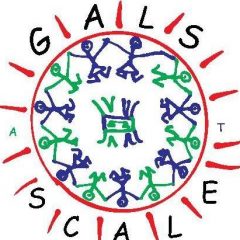
1 October is International Coffee Day, this year the theme is “women in coffee”. I would like to give an example of how coffee can benefit both men ànd women, the whole family. This day is a day of celebration for the Kabuboni Farmers Cooperative in Tharaka Nothing county in Kenya. Members of this cooperative received roasted packets of their own coffee. This coffee is special, as it was produced by the women of the cooperative. They looked after the coffee, they sold it, and they will receive the income from the coffee. It has not always been like this. Coffee in Kenya is called a “man’s crop”: men own the land, on which the coffee grows, they are members of the cooperative, they receive the income and decide over its use. Men receive training on how to improve the coffee, but they usually do not share this information with their wives. Women do a lot of the work on coffee, however, they often do not share in the benefits. Therefore, women often undertake other activities to generate an income which they need for the family, and they grow other crops over which they have control. The coffee trees may be neglected and improved technologies are not being implemented, the quality and quantity of the coffee beans go down.
Some time ago, Peter Ndamberi, the trainer at Sustainable Management Services (SMS), begun training the board members of this cooperative to show them that the way in which the members of the cooperative was working were not benefitting women. Therefore, the coffee is not well taken care of, and also the men lose, as they can sell less coffee at a lower quality. The men decided to give a part of the land to women to look after the coffee, and they could keep the benefits. The women became enthusiastic, and recently, the first ever women-only cooperative meeting was held! The support went further, and it was decided to roast the women’s coffee and they could sell it. Instead of getting only about USD 1 for a kilo of green beans the women now get USD 2 for 250 grams of roasted coffee, a 400 % increase for their coffee! Now the whole family will benefit. The board members and members of the cooperative were trained in the Gender Action Learning for Sustainability at Scale (GALS@Scale), where they learn how to set goals, analyse who is doing what in coffee production, who owns what and who benefits. With this knowledge, they decide themselves what they want to change.
Through my previous work with Hivos, and now as a consultant, I include GALS@Scale in programmes and ensure that trainers are trained, as also Peter was trained, who can implement the methodology in their own country. See elsewhere on this website for more information on GALS. Through implementing GALS the whole family benefits!


